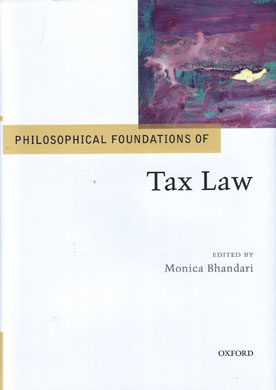
Tax law changes at a startling rate - not only does societal change bring with it demands for change in the tax system, but changes in the political climate will force change, as will many other competing pressures.
With this pace of change, it is easy to focus on the practical and forget the core underpinnings of the tax system and their philosophical justifications.
Taking a pause to remind ourselves of those principles and how they can operate in the modern tax system is crucial to ensuring that the tax system does not diverge too far from what it should be or could be. It is essential to understand the answers to some of the seemingly basic questions that surround tax before we can even begin to think about what a tax system should look like.
This collection brings together major themes and difficult questions in the philosophical foundations of tax law. The chapters consider practical issues such as justification, enforcement, design, and mechanics, and provide a full and coherent analysis of the basis for tax law.
Philosophical Foundations of Tax Law allows the reader to consider how tax systems should move forward in the modern world, with a sound philosophical basis, to provide the practical tax system that the state requires and citizens deserve.